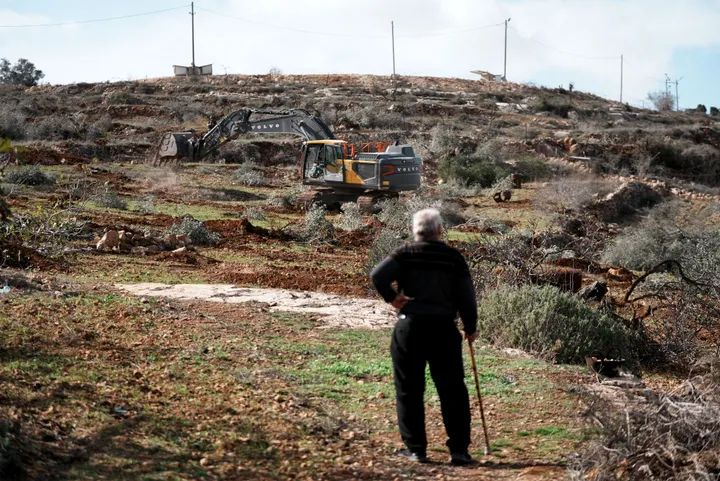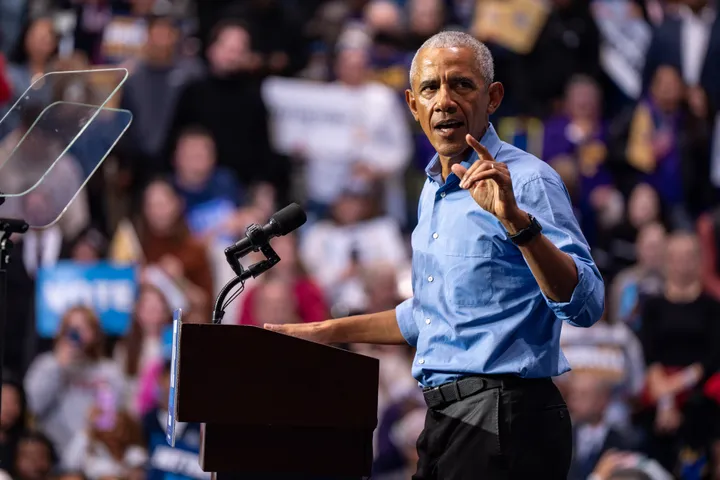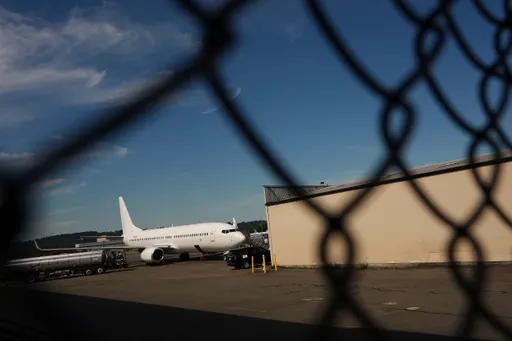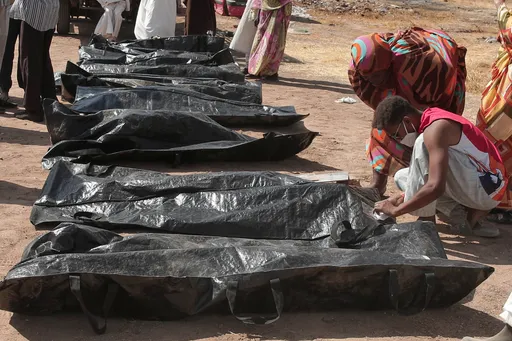By Sylvia Chebet
Nothing illustrates the interconnectedness of all life forms more than the food chain. The slightest disbalance in this interdependence within ecosystems potentially triggers a crisis.
As Namibia battles acute food insecurity brought on by a rampaging drought that has wiped out crops across most of the Southern African country, the ethics of the food chain have been called into question.
With almost half of its population of 3.03 million left with little to eat, the government has had to take a tough decision — slaughter wildlife to feed hungry families.
"If we do not undertake culling, we will have mass mortalities due to the drought situation that we are facing," Romeo Muyunda, spokesperson for Namibia's ministry of environment, tells TRT Afrika.
"There will be shortages of grazing vegetation and drinking water for both animals and people. This will lead to further conflicts between people and animals. And when there are such conflicts, animals are always going to be at the losing end."
The culling has begun, and for many starving families, a portion of meat means they live to fight another day.
Neighbouring Zimbabwe has followed suit, deciding to cull 200 elephants to feed people impacted by the worst drought in decades.
Conservation alarm
As is to be expected, Namibia's drought relief programme has elicited strong reactions from conservationists, who see it as a short-sighted, unsustainable solution.
Academician Julian (not his real name) argues that the culling exercise would hardly ease food scarcity. "It is quite obvious that the meat will be distributed fast, and the consumption thereof will also be quick," he tells TRT Afrika.
"The problem is: What do you do next?"
Animal rights group PETA has shot off a letter to Prime Minister Saara Kuugongelwa-Amadhila, explaining what makes the step "not only cruel but also dangerously short-sighted".
"(It) will have no long-term impact on these complex problems," PETA senior vice president Jason Baker says in the letter, posted on the organisation's website.
PETA is concerned that the cull could lead to imbalances in ecosystems, a situation that has seen some conservationists threaten legal action.
"The killing of even a few elephants could devastate entire herds, leading to increased mortality among survivors and more frequent and dangerous human-animal conflicts," Baker warns in the letter to the PM.
A group of African conservationists, too, has issued a joint statement expressing their concern over the mass cull in Namibia, saying it sets a precedent of enabling governments "to exploit protected wildlife and national parks under the guise of humanitarian needs".
The statement questions whether any environmental impact assessment was done beforehand.
Rumble in the jungle
The government has enlisted the services of professional hunters for the culling. The initial authorisation from the ministry of environment is to cull 30 hippos, 60 buffalos, 50 impalas, 83 elephants, 100 blue wildebeests, 100 elands (antelopes) and 300 zebras.
Most of these animals are from the country's protected national parks.
"As far as criticism of the Namibian government's intervention is concerned, we just want to say that these Western NGOs perhaps do not understand the severity of the situation in the country," says Muyunda.
“At the end of the day, Namibia is a sovereign state. We make our decisions based on what we feel is best for our people, and those who criticise — basically, most of them —have wiped out their wildlife already."
But Julian fears this is a solution that will create even more problems for Namibian society.
"The action may temporarily ease people's hunger but create a dependency syndrome. People will expect the government to continue supplying food even after the drought is gone," he says.
So, what is the best possible course given the realities of the debilitating drought?
Julian wants the government to start thinking about mitigation measures for the long term and provide people with the skills to become self-sufficient so that the nation can feed itself before, during and after droughts like these.
Namibia declared a state of emergency in May due to the drought that has since gripped a swathe of countries across Southern Africa.
The dry conditions, among a clutch of climate-change consequences that the world will have to increasingly deal with, have caused cereal production to plummet by 53% and dam water levels to drop 70% compared to last year.
It is Southern Africa's worst drought in decades, owing to a combination of the naturally occurring El Nino phenomenon — abnormal warming of the waters in the eastern Pacific — and higher than average temperatures triggered by greenhouse gas emissions.
The Southern African Development Community estimates that about 68 million people, or 17% of the region's population, are in need of aid.
The regional bloc has appealed for US $5.5 billion in humanitarian assistance to support the drought response.
➤ Click here to follow our WhatsApp channel for more stories.









.JPG?width=512&format=webp&quality=80)












